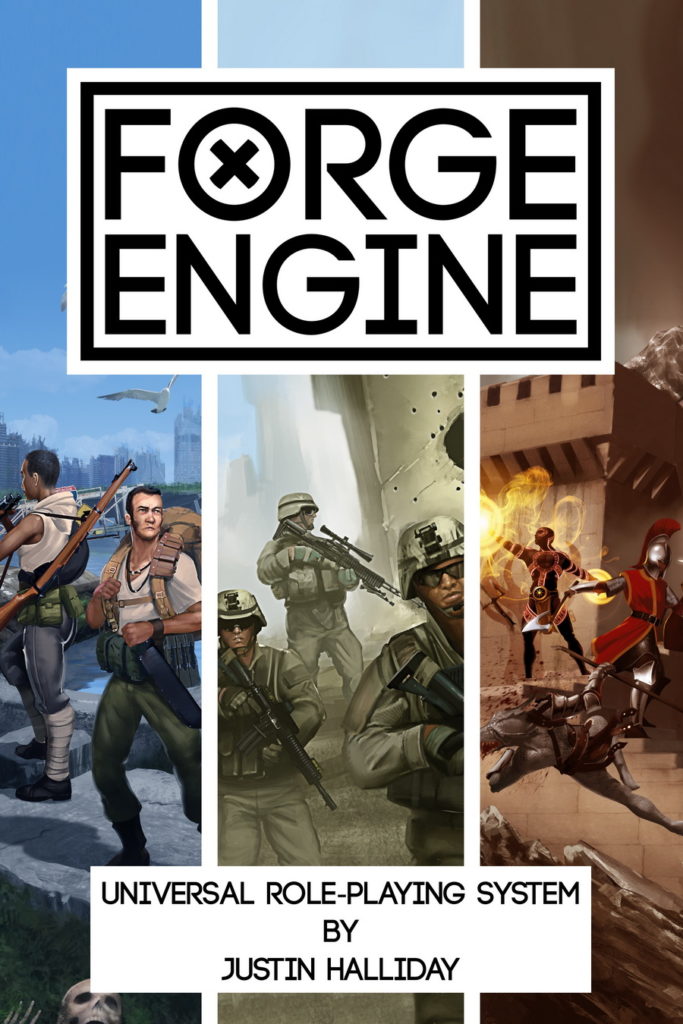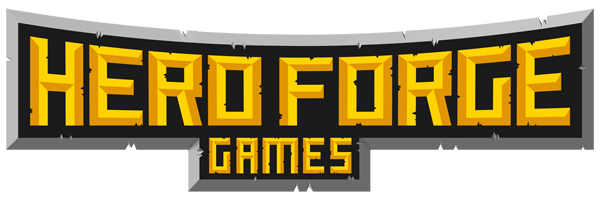

Since the release of Forge Engine universal role-playing system in 2018, I’ve been working on a new RPG; Onyx Sky.
Onyx Sky is a post-apocalyptic RPG that explores the world after a devastating global war and catastrophic climate change plunge humanity back into the stone age.
Onyx Sky takes the underlying principles of Forge Engine (stats + skills, flexible action economy) and re-imagines them into a streamlined and accessible new system.
Where Forge Engine used d10 die pools composed of the character’s attribute and skill ratings, Onyx Sky uses a step-die pool system.
In Onyx Sky, the character’s six attributes are represented by step dice, so a beginning character may have a d6 in an attribute, while a more advanced character would have a d10, d12 or beyond. This step-die system progresses from d6 through d8, d10, d12, d16, d20, d24, d30. Having a d6 in an attribute represents ‘below’ average capability, a d8 is an average human, and the higher dice ‘steps’ represent greater capability levels.

The dice pools for attribute tests in Onyx Sky always include the character’s attribute die, then they may also include a second skill die if the character has a relevant skill, and finally they may also include a third specialization die if the character has an appropriate area of specialist training.
Each attribute has a number of associated skills, such as Athletics which is based on Strength, Acrobatics which is based on Acuity, and Survival which is based on Acuity. In Forge Engine, these skills could be trained at various rating levels (from ◆◇◇◇◇ to ◆◆◆◆◆), whereas in Onyx Sky, these skills are either untrained or trained. When an Onyx Sky character is trained in a skill, the player rolls a second die using the same die as the attribute.
For example, an post-apocalyptic wanderer making an Acuity (Survival) test to forage for food would roll their Acuity die (d12), a second d12 for their Survival skill, and a third d12 for their specialist Forage training.
These dice pools are then rolled against a static difficulty number for normal challenges, or against the target’s defense pool for attacks. Each die that equals or beats the difficulty number (or the target’s highest defense die) is a success. This generally means that attribute tests and attacks can achieve between 1 and 3 successes. For general attribute tests, these successes define how well the character achieved their task. For combat, these successes each translate into damage, with the weapon’s damage being dealt for each success.
Here are the core features of Onyx Sky:
- Attributes have die ranks; d6, d8, d10, d12, d16, d20
- Skills are either untrained or trained
- Action pools of 1 or more dice are used for attribute tests and attacks
- In attribute tests, the action pool rolls against a fixed difficulty
- Action pools for attribute tests include the character’s attribute die, a die for the relevant skill, and possibly a final die for a specialized skill.
- Attribute tests can achieve multiple successes
- For attacks, the action pool rolls against the target’s defense pool
- Action pools for attacks include the character’s attribute die, a die for their weapon’s training, plus dice for specialized situational techniques
- Defense action pools include the character’s body die, and additional dice for armor, skills, and specialized situational techniques
- Attacks can achieve multiple successes, and when an attack hits, the weapon’s damage is dealt for each success
Drop me an email if you’re interested in playtesting Onyx Sky.
